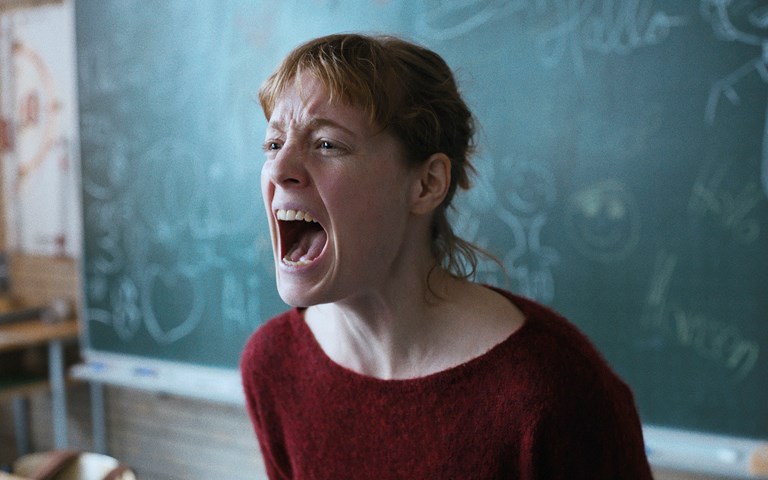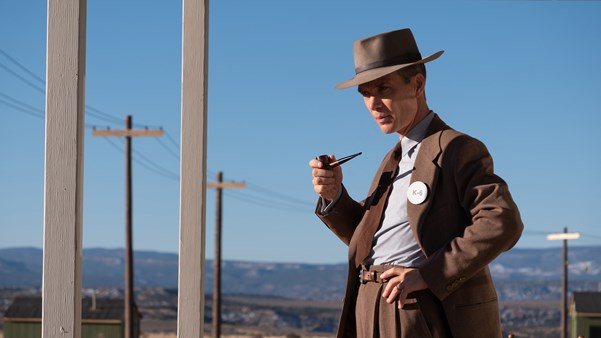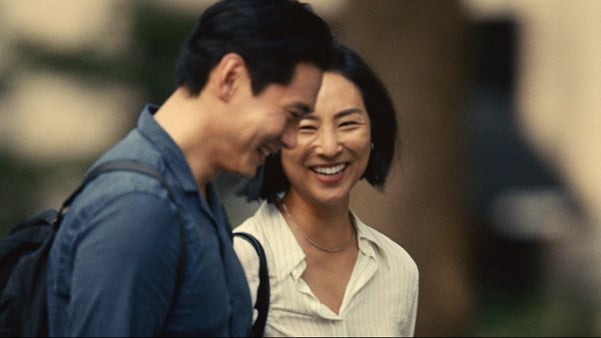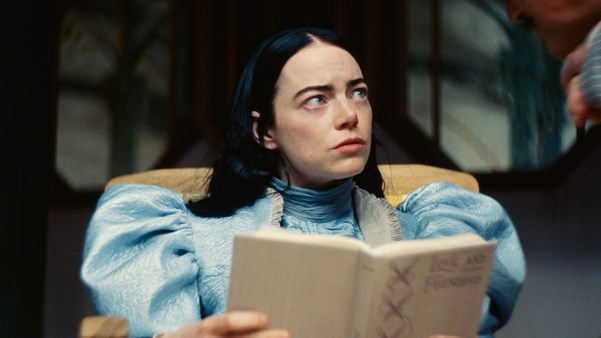Writer-director İlker Çatak’s Oscar-nominated, single-location thriller The Teachers’ Lounge shows how a simple accusation can precipitate life-changing consequences when a school secretary (Eva Löbau) is accused of stealing from a teacher (Leonie Benesch). Here, Arjun Sajip speaks with Çatak and co-screenwriter Johannes Duncker about their creative collaboration.

ARJUN SAJIP: WHERE DID THE IDEA FOR THE FILM COME FROM?
JOHANNES DUNCKER: İlker and I went to high school together, and have been in touch ever since. Once, when we were on holiday, I told him about a series of thefts that took place at the school where my sister taught. İlker then reminded me of something that had happened to us – the frisking of students in our classroom. We talked about what it does to you when there are these kinds of allegations, and how your perception of people around you changes when you start to see them as potential thieves.
İLKER ÇATAK: It took us around a year to write, from the original idea to the final screenplay.
JD: It may have been fast, but it wasn’t necessarily easy. There were some decisions that make sense in hindsight, but you’re not sure about them at the time. Deciding that we wanted to shoot the whole thing at school, and didn’t want to go into the characters’ private lives, took some time to arrive at.
İÇ: Deciding not to leave the school was a big breakthrough for the project. It was the moment where things started to fly. It sounds paradoxical, but fewer possibilities led to more creativity.
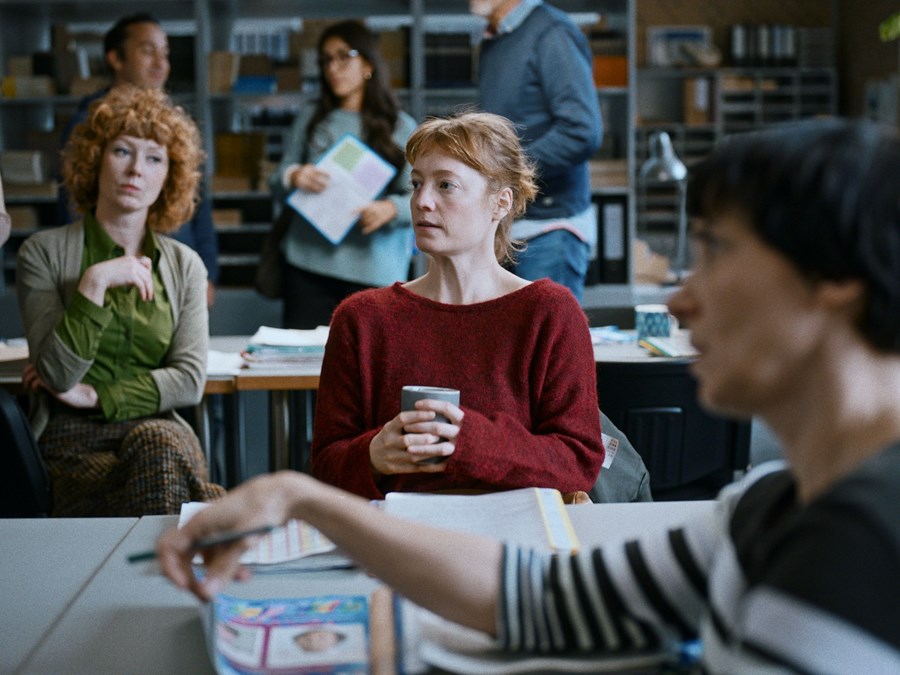
The Teachers' Lounge (2024)
AS: HOW DID YOU GO ABOUT CREATING TENSION?
İÇ: We had a few rules while writing the screenplay: don’t leave the school; if there is no conflict that would naturally arise in a scene, we probably don’t need it; nobody ever backs down; there are no victims. The combination of these rules alone already created tension. We weren’t really thinking about genre – I knew that there was a kind of Blow-Up [1966] moment with the surveillance and the supposed crime going on, but other than that I was just trying to make a straightforward film. ‘Genre’ elements such as music and pace came later, in post-production.
JD: Very early on we knew that the thefts would create a certain pressure and force characters to act or position themselves in relation to it. We knew there were these aspects of a detective story in the material, but we also knew that at some point a whodunnit would not be interesting any more, and answering it would be less interesting than looking at the repercussions that (probably false) suspicions have.
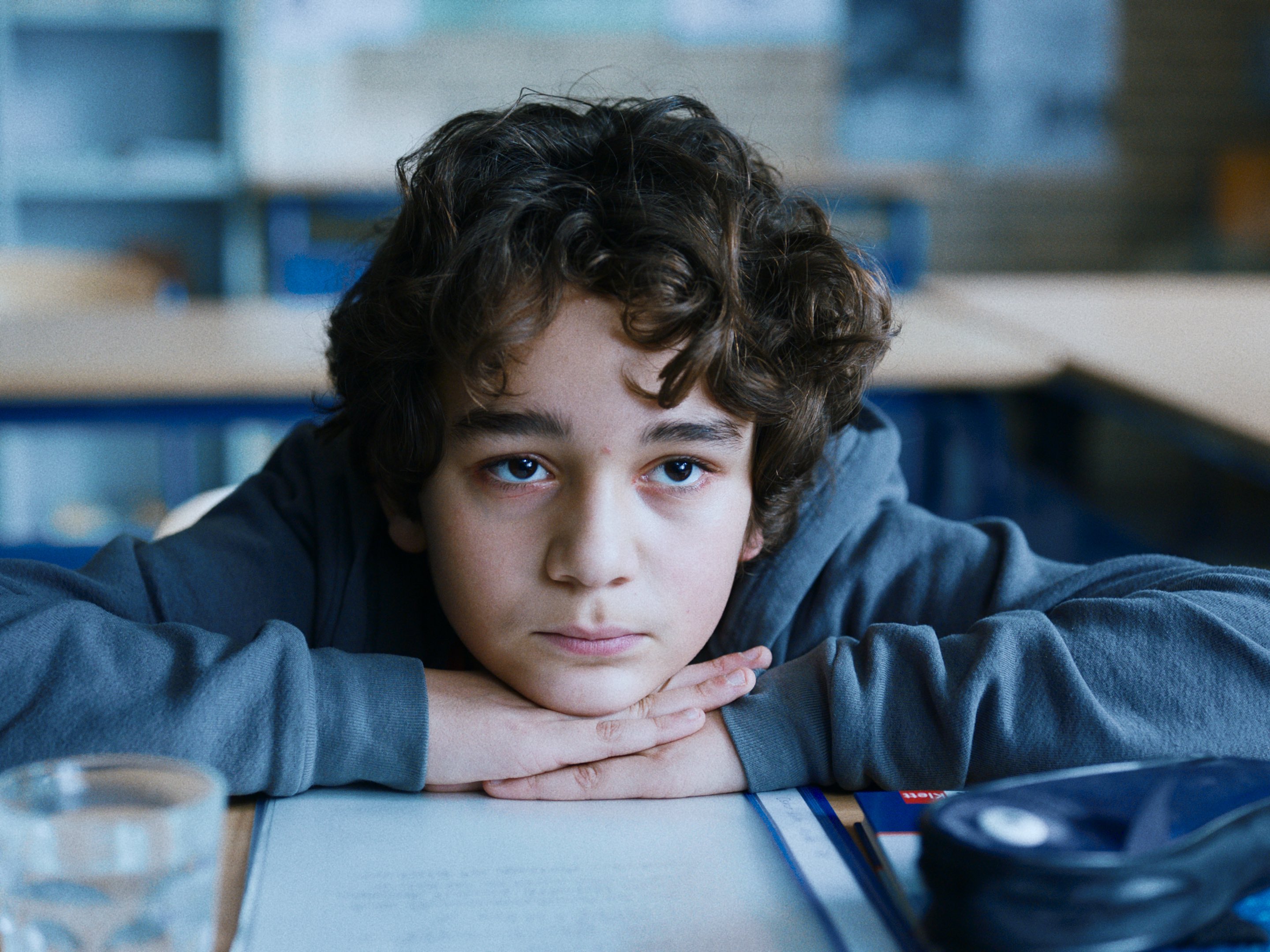
AS: THE FILM EXPLORES POWER DYNAMICS, MORAL AMBIGUITY AND SOCIAL JUSTICE. WHAT DID YOU WANT TO COMMUNICATE WITH THESE THEMES?
İÇ: When we made this film, it wasn’t about us wanting the world to understand something. Filmmaking is a tool to cope with the world – to understand something better. Most of the time there is one interesting conflict that a screenplay can be built around. Then you look at the world around you, and that very much defines what makes it into the script. In this case, we were bugged by our debate culture: we questioned the whole cancel-culture thing, as well as the newly introduced notion of alternative facts.
AS: THE SCREENPLAY LEANS INTO THE AMBIGUITY OF UNFOLDING EVENTS. HOW EASILY DID THIS TRANSLATE FROM PAGE TO SCREEN?
İÇ: Smart actors like ambiguity because it gives them a sense of uncertainty. And in a state of uncertainty their acting is more vulnerable – it’s more of a search, and has the potential for unknown greatness. It’s the opposite of a preconceived idea, which can be effective on set, but rarely goes into the unexpected. For us as storytellers, it is about finding those grey areas, the places where it’s not clear who is right and who is wrong. Ambiguity is a great motor for storytelling because it gives all parties a position from which they can bring an argument. When even the ‘villain’ has a point, acting becomes easier.
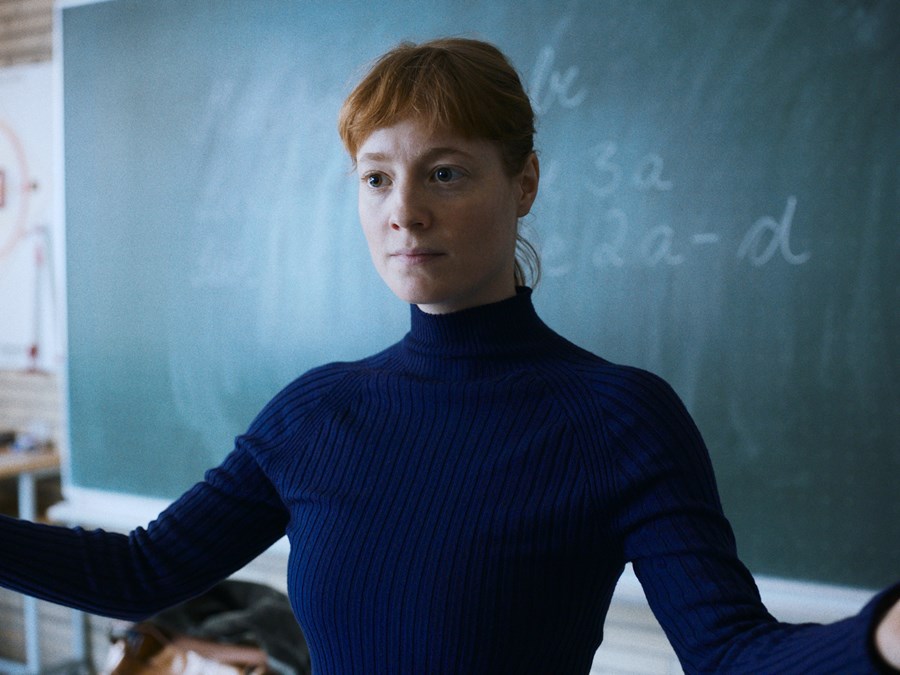
The Teachers' Lounge (2024)
AS: WHAT WAS IT LIKE WRITING TOGETHER?
JD: It’s immensely helpful when you’ve known each other for such a long time. You have this common language. Especially for this project, because we’d been at school together – we had these reference points. We didn’t need to explain a lot to each other.
İÇ: It was also very important to challenge each other, sometimes advocating from another point of view. I always compare co-writing to a sort of marriage – you need to be able to say anything that’s on your mind without fear that the other person might take it personally.
THE TEACHERS' LOUNGE IS IN CINEMAS FROM 12 APRIL
